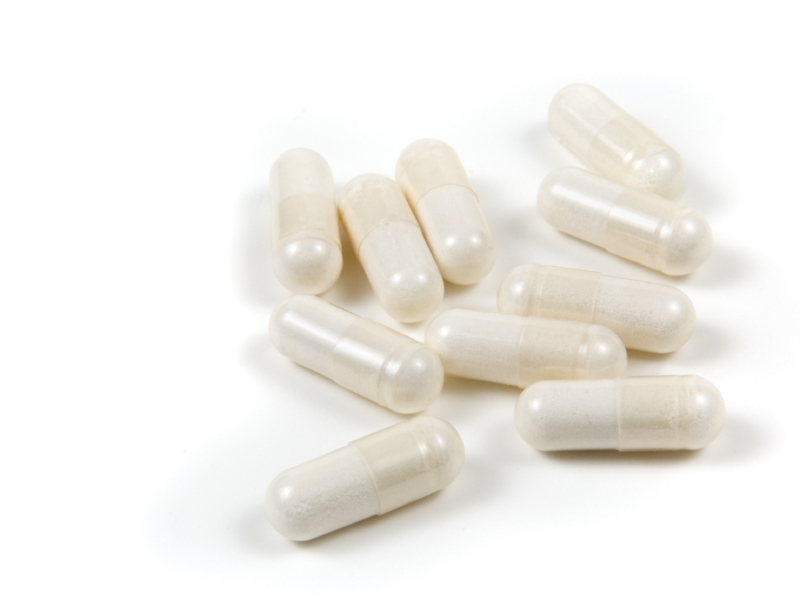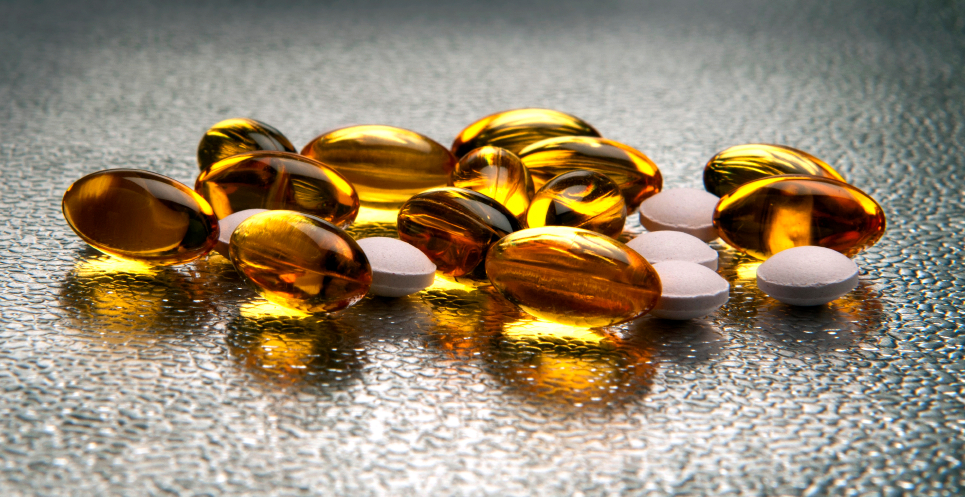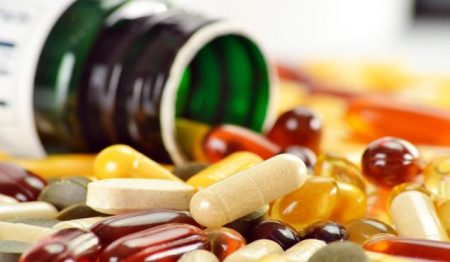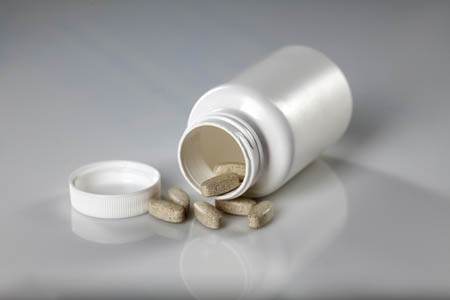Vitamin Methyl B12 Improved Autism Symptoms in Randomized, Placebo-Controlled Study
In a 2016 article in the Journal of the American Academy of Child and Adolescent Psychiatry, Robert L. Hendren and colleagues described an 8-week study in which the vitamin methyl B12 improved symptoms of autism spectrum disorders in children.
Fifty-seven children were randomized to receive either 75??g/kg of methyl B12 injected under the skin every three days or saline injections as a placebo instead. Methyl B12 improved the children’s autism symptoms compared to placebo. The improvements correlated with increases in levels of the amino acid methionine in the blood and improvements in cellular methylation capacity. Children with autism spectrum disorders have reduced ability to methylate (i.e. add methyl groups to) DNA. The methylation process helps convert the toxic amino acid homocysteine into beneficial methionine. The children who received methyl B12 showed a reduction in homocysteine and a better ratio of methionine to homocysteine.
Homocysteine is bad for the heart, for cognition, and for fetal development, while methionine can help improve depression and is important to many cellular reactions. Converting homocysteine to methionine requires vitamin B12 and folate, another B vitamin found in foods such as green vegetables and beans.
Taking folate supplements can help make antidepressants more effective by aiding the methylation process. However, some people have a common variation in the MTHFR gene that makes it difficult for the body to make use of folate. These people would need to take the nutritional supplement L-methylfolate instead of regular folate to help in the conversion of homocysteine to s-adenosylmethionine (SAMe, which acts as an antidepressant).
Prenatal Prevention of Psychiatric Illness with Nutritional Supplements
 In a 2018 article in the American Journal of Psychiatry, researcher Robert Freedman and colleagues shared the results of a systematic review of data on nutritional supplements during pregnancy for the primary prevention of psychiatric illness in the child. Freedman and colleagues concluded that the evidence is robust that prenatal folic acid supplementation plus multivitamins not only can prevent birth defects such as cleft palate, spina bifida, and microcephaly, but also social withdrawal, decreased attention, and aggression at age 18 months. They wrote, “Supplements of up to 4 mg [of folic acid] before 12 weeks gestation have been found to be safe and effective.”
In a 2018 article in the American Journal of Psychiatry, researcher Robert Freedman and colleagues shared the results of a systematic review of data on nutritional supplements during pregnancy for the primary prevention of psychiatric illness in the child. Freedman and colleagues concluded that the evidence is robust that prenatal folic acid supplementation plus multivitamins not only can prevent birth defects such as cleft palate, spina bifida, and microcephaly, but also social withdrawal, decreased attention, and aggression at age 18 months. They wrote, “Supplements of up to 4 mg [of folic acid] before 12 weeks gestation have been found to be safe and effective.”
The effects of omega-3 fatty acid supplementation depended on when the supplements were taken. Taking omega-3 fatty acid supplements early in pregnancy was linked to an increase in schizophrenia and more symptoms of attention deficit hyperactivity disorder (ADHD) in the offspring. However, supplementation after 20 weeks of pregnancy decreased preterm delivery, low birth weight, and asthma.
As of 2017, choline supplementation during pregnancy is recommended by the American Medical Association. Their recommendation is based on research in which the choline precursor phosphatidylcholine (5,000-6,300 mg/day) was given to mothers beginning in the 18th week of pregnancy and continued in the newborn for two weeks to three months after birth in the form of 100mg of liquid phosphatidylcholine. This supplementation regimen normalized the P50 auditory evoked potential, a measure of inhibitory sensory gating that is abnormal in patients with schizophrenia and bipolar disorder and infants whose parents had psychosis, depression, or smoked (all risk factors for a later diagnosis of schizophrenia).
Healthy individuals show a reduced response to an auditory cue when it is repeated 50 milliseconds after the initial cue. In people with schizophrenia, response to the repeated cue is not suppressed. Not only did the P50 auditory evoked potential normalize with phosphatidylcholine supplementation, but at 3.5 years of age, those who received phosphatidylcholine supplements in utero and as newborns had fewer problems with attention and social interactions. The findings were even more robust in those with the CHRNA7 genotype (a genetic variation in the alpha 7 nicotinic receptor), which is a risk factor for schizophrenia.
Supplementation with vitamins A and D during gestation also decreased the risk for schizophrenia and autism spectrum disorders in offspring. Recommendations include Vitamin D at doses of 600 to 4,000 IU for pregnant mothers and 400 to 1,000 IU for infants. Because of potential toxicity, vitamin A should be limited to 8,000 units from diet and supplements combined. (Supplements typically contain 2,500 units.)
While there are some methodological limitations to the findings, Freedman and colleagues conclude, “As part of comprehensive maternal and fetal care, prenatal nutrient interventions should be further considered as uniquely effective first steps in decreasing risk for future psychiatric and other illnesses in newborn children.”
Editor’s Note: Given the high risk of psychiatric illness (74%) in the offspring of a parent with bipolar disorder and the finding of abnormal P50 auditory evoked potential in patients with bipolar disorder, the recommended nutritional supplements should be given special consideration during gestation of a child who has a parent with bipolar disorder. According to the 2018 article by Freedman and colleagues, this would include folate, phosphatidylcholine, vitamin A and vitamin D.
Antioxidant Supplement Coenzyme Q10 Looks Promising for Bipolar Depression
Coenzyme Q10 (CoQ10) is an antioxidant that occurs naturally in the human body, but its levels decline with age, medical illness, and depression. In a randomized, controlled trial that was published in the Journal of Clinical Psychopharmacology in 2018, researcher Maryam Mehrpooya and colleagues found that adding coenzyme Q10 supplements to a treatment regimen improved bipolar depression compared to adding placebo.
The pathophysiology of bipolar disorder involves mitochondrial dysfunction, oxidative stress, and inflammation, and coenzyme Q10 can affect all of these pathways. It is also neuroprotective, and may help prevent the degeneration of neurons in people with Alzheimer’s, Parkinson’s, or Huntington’s diseases.
The study included a final total of 69 participants who were randomly assigned to receive either 200 mg/day of coenzyme Q10 supplements or placebo in addition to their normal treatment regimen, which had been stable for at least two months at the time of the study. Participants’ bipolar depression was rated at the beginning of the study, after four weeks, and after eight weeks. At the eight-week mark, coenzyme Q10 showed a statistically significant benefit over placebo with a large effect size. Three participants who received coenzyme Q10 experienced full remission of their depression, and 72% of those in the coenzyme Q10 group improved compared to only 12% of those who received placebo.
The study had some limitations. It was small, and twenty participants dropped out of the study before its completion, which may have inflated the findings.
Previous research found that coenzyme Q10 had benefits in specific populations. In two non-blind studies (studies in which participants know that they are receiving the treatment in question rather than possibly a placebo), 29 older patients with bipolar disorder improved when taking 800 mg to 1200 mg/day of coenzyme Q10. A randomized, controlled trial of coenzyme Q10 in people with multiple sclerosis and depression found that 500 mg/day reduced fatigue symptoms and depression. Coenzyme Q10 has also improved well-being and energy in small, controlled trials in people with breast cancer, Gulf War veterans, and elderly populations.
Taking coenzyme Q10 is low-risk. It had no adverse effects in the study by Mehrpooya and colleagues. Gastrointestinal reactions are possible, but can be managed by taking coenzyme Q10 with food and spreading out dosing throughout the day. Insomnia is also possible, but is less likely when coenzyme Q10 is taken early in the day. One effect to note is that coenzyme Q10 can interact badly with the blood-thinner warfarin.
Editor’s Note: The study by Mehrpooya and colleagues is interesting. Another antioxidant, N-acetylcysteine (NAC), also took 2 months to work in trichotillomania and bipolar depression, so patients should be warned not to expect a quick response with either coenzyme Q10 or NAC. Other potentially useful supplements include: Vitamin D3 (1500–5000 IU/day), folate or L-methylfolate, and acetyl-L-carnitine. Acetyl-L-carnitine may work more quickly, based on its presumed mechanism (increasing the production of the inhibitory metabotrophic glutamate receptor mGluR-2, which inhibits glutamate release).
Vitamin D3 Improves Depression in Older Adults
Researcher Negin Masoudi Alavi and colleagues reported in the journal Clinical Nutrition in 2018 that compared to placebo, 50,000 IU of vitamin D3 taken weekly for eight weeks improved depression in depressed patients over the age of 60.
Although the literature about vitamin D3’s effects on depression are mixed, a 2014 meta-analysis by Simon Spedding in the journal Nutrients found that in studies of vitamin D-deficient depressed participants whose vitamin D levels were restored to normal levels by the end of the study, vitamin D significantly improved depression. (Spedding attributed earlier mixed results to studies that did not clearly correct a vitamin D deficiency.) A 2013 study by Nayereh Khoraminya and colleagues in the Australian and New Zealand Journal of Psychiatry suggested that a 1500 IU dose of vitamin D3 combined with the selective serotonin reuptake inhibitor (SSRI) antidepressant fluoxetine improved depression more than fluoxetine plus placebo in depressed patients who were not necessarily deficient in vitamin D. Another study by Jacqueline A. Pettersen in the journal Experimental Gerontology found that in healthy adults, 4,000 IU of vitamin D3 improved cognitive functioning (namely visual memory) more than 400 IU.
Editor’s Note: Given these promising studies, the safety of D3, and fact that psychiatric patients are often deficient in vitamin D3, taking vitamin D3 supplements to improve depression might be worth trying.
Supplements for the Treatment of Schizophrenia
At the 2018 meeting of the North Carolina Psychiatric Association, researcher Karen Graham reviewed evidence for adjunctive treatments that may help treat schizophrenia when added to antipsychotic medications.
Graham endorsed omega-3-fatty acids, saying that they may delay the conversion to schizophrenia in young people at high risk for the illness. Data in chronic schizophrenia are more equivocal.
Data on the effects of vitamin D3 in schizophrenia are mixed, but D3 is often low in patients with psychotic disorders, and supplementation with vitamin D3 in the general population has been associated with decreases in cancer and all-cause mortality.
Graham indicated that in three studies vitamin B6 (pyridoxine) decreased tardive dyskinesia, a side effect of antipsychotic medication that is characterized by repetitive or jerky involuntary movements of the face and body. B6 also reduced the severity of akathisia or restless legs, which is comparable to the effects of 40mg/day of the beta blocker drug propranolol. Graham recommended a dose of 300mg/day of B6 that could be increased up to 600mg twice per day. The onset of effects usually begins by week three, and the cost ranges from 25 to 80 cents per day.
The antioxidant supplement N-acetylcysteine (NAC) may also help. Graham described six studies that found NAC had positive effects on negative symptoms (apathy, blunted emotions, etc.) and/or cognition in patients with schizophrenia. The dosage in these studies was usually 2 grams/day for 24 weeks. The cost was 50 cents per day.
Two 8-week trials of L-theanine (an amino acid found in green and black tea) at doses of 400mg/day improved negative symptoms and anxiety in 40 patients with schizophrenia. The rationale for the study was that L-theanine increases inhibitory neurotransmitters, modulates the amino acid 5-HTP and the neurotransmitter dopamine, increases brain-derived neurotrophic factor (BDNF), and may be neuroprotective after a heart attack or a traumatic brain injury. The cost is 40 cents per day.
Graham reported that the supplement ginkgo biloba produced significant improvement in negative symptoms and total symptoms in eight clinical trials that included a total of 1,033 patients with schizophrenia. Doses ranged from 240 to 360 mg/day. These supplements (usually extracted from leaves of the ginkgo tree) have not been found to have many side effects, but they can reportedly increase post-operative bleeding. Gingko biloba supplements cost 20 to 80 cents per day. There is also at least one positive study of ginkgo biloba in tardive dyskinesia.
Three of four studies of cannabidiol in schizophrenia have been positive (at doses of 600, 800, and 1,000 mg/day in studies that lasted four to six weeks). There are now six additional ongoing studies listed on the website clinicaltrials.gov. There is little of this diol component in regular marijuana, and the cost of pure cannabidiol is unfortunately an exorbitant $60 to $100/day.
There is a positive controlled study of the herb ashwagandha in 66 patients with schizophrenia.
Not included in Dr. Graham’s review was the prenatal treatment of women with phosphatidylcholine (900mg/day) followed by supplements in the newborn, which normalized an aspect of sensory gating known as P50 in patients with schizophrenia. Healthy individuals show a reduced response to an auditory cue when it is repeated 50 milliseconds after the initial cue. In people with schizophrenia, response to the repeated cue is not suppressed. This has been suggested by researchers Robert Freedman and Randal G. Ross in a 2015 article in the Shanghai Archives of Psychiatry as a possible primary preventive approach to schizophrenia.
Pregnant women in their second and third trimesters should at least consume foods high in choline, especially if the fetus is at high risk for schizophrenia because of a family history of schizophrenia.
Beef liver is very high in choline, providing 420mg per slice. Other animal products provide significant choline, such as eggs (120 mg/egg), beef (90mg/100g), chicken liver (85mg/liver), fish (85mg/100g), bacon (35mg/strip) or other pork, chicken (67mg/100g). Tofu (36mg/half cup) and cereal (22mg/half cup) are also sources of choline.
Foods High in Choline
| Beef liver | 1 slice | 420mg choline; |
| Egg | 1 egg | 120; |
| Beef | 100 gm | 90; |
| Chicken liver | 1 liver | 85; |
| Fish | 100 gm | 85; |
| Bacon or pork | 2 strips bacon | 70; |
| Chicken | 100 gm | 67; |
| Tofu | 120 ml (0.5 cup) | 36; |
| Cereal | 120 ml (0.5 cup) | 22 |
Antioxidant N-Acetylcysteine Improves Working Memory in Patients with Psychosis
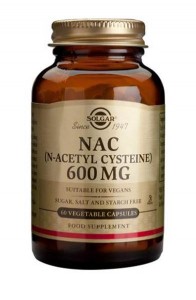 In a 2017 article in the journal Psychological Medicine, researcher Marta Rapado-Castro and colleagues reported that among 58 patients with bipolar disorder or schizophrenia and symptoms of psychosis, those who took two grams per day of the antioxidant n-acetylcysteine (NAC) showed improvements in working memory after six months compared to those who took placebo over the same study period.
In a 2017 article in the journal Psychological Medicine, researcher Marta Rapado-Castro and colleagues reported that among 58 patients with bipolar disorder or schizophrenia and symptoms of psychosis, those who took two grams per day of the antioxidant n-acetylcysteine (NAC) showed improvements in working memory after six months compared to those who took placebo over the same study period.
Antipsychotic medications can typically reduce psychotic symptoms such as delusions or hallucinations, but cognitive symptoms such as problems with learning, memory, or information processing may remain. NAC, which is sold over-the-counter as a nutritional supplement, seemed to improve these symptoms.
The researchers suggest that larger studies of NAC are needed, particularly to determine whether giving NAC to patients during their first episode of psychosis could prevent cognitive decline from occurring at all during the course of their illness.
NAC has been found to have a range of benefits, including reducing substance abuse and interfering with habit-based behaviors such as compulsive hair-pulling, obsessive-compulsive disorder, and gambling.
Researcher Michael Berk, a co-author of the study, reported in the journal Biological Psychiatry in 2008 that NAC could also improve depressive symptoms in bipolar disorder and negative symptoms in schizophrenia.
Editor’s Note: Since cognitive deficits are common in both schizophrenia and bipolar disorder, using NAC in addition to antipsychotic medications could be a useful tool to address these types of symptoms.
Nutritional Supplement ALC Improves Depression
A meta-analysis of 12 studies suggests that the nutrient acetyl-l-carnitine (ALC), when taken as a nutritional supplement, has antidepressant effects. The meta-analysis by researcher Nicola Veronese and colleagues appeared in the journal Psychosomatic Medicine in 2017. Veronese and colleagues found that in nine randomized controlled trials, ALC reduced depressive symptoms significantly compared to placebo. In three randomized controlled trials that compared ALC with established antidepressants, ALC showed similar effectiveness at reducing depressive symptoms while producing 79% fewer side effects. Doses of ALC ranged from 1 to 4 grams per day, and higher doses led to greater improvement.
In the comparisons with antidepressants, the other treatments included fluoxetine (Prozac), duloxetine (Cymbalta), and amisulpride (which is not approved by the US Food and Drug Administration).
Low ALC has been linked to depression. According to Veronese and colleagues, ALC deficiency can dysregulate the transport of fatty acids across the inner membrane of mitochondria. The researchers suggest several ways that ALC might contribute to an improvement in depression. One is that is seems to promote neuroplasticity in cerebral regions implicated in depression, such as the hippocampus. It could also work by increasing brain-derived neurotrophic factor (BDNF), which protects neurons and is important for learning and memory. ALC decreases release of the neurotransmitter glutamate by increasing the production of the inhibitory metabotrophic glutamate receptor (mGluR-2) on presynaptic glutamate neurons . Another way ALC might work is by normalizing lipid metabolism. Or it could modulate neurotransmitters, increasing serotonin and dopamine and protecting against stress.
In the meta-analysis, ALC produced more improvement in older patients than in younger ones. The researchers stressed the need for better treatments for older people, which may experience falls, cardiovascular disease, or increased mortality from antidepressants.
ALC also seems to improve pain syndromes, making it a good option for patients with both depression and pain symptoms.
Veronese and colleagues cited another meta-analysis that found that taking ALC in addition to an antidepressant led to lower rates of adverse events than the antidepressants alone, which helped patients adhere to their drug regimen.
Probiotics May Improve Depression As Well As IBS
 A pilot study of people with irritable bowel syndrome (IBS) suggests that taking a probiotic nutritional supplement can improve depression as well as gastrointestinal upset.
A pilot study of people with irritable bowel syndrome (IBS) suggests that taking a probiotic nutritional supplement can improve depression as well as gastrointestinal upset.
In the 2017 study published in the journal Gastroenterology, researcher Maria Pinto Sanchez and colleagues at the Farncombe Family Digestive Health Research Institute found that when those with IBS took a probiotic, their co-occurring depression improved more than it did in people with IBS who took a placebo.
Senior author Premysl Bercik suggested the study confirms that the microbiota environment in the gut affects what goes on in the brain, opening new avenues for the treatment of psychiatric diseases.
The study included 44 adults with IBS who also had mild to moderate anxiety and depression. For 10 weeks, half received a daily dose of the probiotic Bifidobacterium longum NCC3001, while the others received placebo.
After 6 weeks, 64% of the probiotic group saw improvement in their depression, compared to 32% of the placebo group. Functional magnetic resonance imaging (fMRI) showed brain changes associated with the improvement in mood.
The researchers are planning larger trials of probiotics.
Dietary Supplements for Autism: Up-to-Date Research
A 2017 review article by Yong-Jiang Li and colleagues in the journal Frontiers in Psychiatry describes the current research on dietary supplements that may help improve symptoms of autism spectrum disorder.
Some of the most promising research was on vitamin D, folinic acid, and sulforaphane. Methyl B12 and digestive enzyme therapy had some positive effects, while gluten- and casein-free diets and omega-3 fatty acids did not seem to help improve autism symptoms.
Vitamin D
Li and colleagues described a randomized, controlled trial of vitamin D in 109 children with autism aged 3 to 10 years. The experimental group received doses of 300 IU/kg of body weight/day, not exceeding 5000 IU/day. By the end of the four-month study, vitamin D levels had significantly increased in the experimental group compared to the control group. Those who received vitamin D also showed significant improvement on all ratings of autism symptoms, which included general scales of autism symptoms and more specialized checklists that capture aberrant behavior and social responsiveness.
Folinic Acid
The review article also described a randomized double-blind placebo-controlled trial of folinic acid in 48 children with autism spectrum disorder and language impairment. Participants received high-dose folinic acid (2 mg/kg/day) or placebo for 12 weeks. Those who received folinic acid, a form of folic acid that can readily be used by the body, showed significant improvements in verbal communication and core autism symptoms compared to those who received placebo. Participants who tested positive for folate receptor alpha autoantibodies (FRAA), which disrupt the transportation of folate across the blood-brain barrier and are common in autism, showed greater improvements from taking folinic acid than those without this abnormality.
Sulforaphane
Sulforaphane is a phytochemical derived from cruciferous vegetables. It can create metabolic effects that resemble those of a fever, which can improve behavioral symptoms of autism. Sulforaphane also fights oxidative stress, inflammation, and DNA damage, which may play roles in autism. Li and colleagues described the first double-blind, placebo-controlled trial of sulforaphane treatment in 29 boys aged 13 to 17 years. The boys who received sulforaphane showed significant improvement in autism-related behavior, especially social interaction and communication, after 18 weeks compared to those who received placebo. Sulforaphane has low toxicity and is well tolerated. Read more
High-Dose Vitamin D May Improve Cognition More Than Low-Dose Vitamin D
 Vitamin D deficiency has been associated with dementia and cognitive decline, but supplements may help. In a study of 82 healthy individuals with low vitamin D levels, high-dose vitamin D supplements (4000 IU/day) improved visual/nonverbal memory more than did low-dose vitamin D supplements (400 IU/day) over 18 weeks.
Vitamin D deficiency has been associated with dementia and cognitive decline, but supplements may help. In a study of 82 healthy individuals with low vitamin D levels, high-dose vitamin D supplements (4000 IU/day) improved visual/nonverbal memory more than did low-dose vitamin D supplements (400 IU/day) over 18 weeks.
The 2017 study took place in Canada, where short winter days can make it more difficult to get sufficient levels of vitamin D from sunlight. The higher-dose supplements raised blood levels of vitamin D compared with the lower-dose supplements.
Those who received the higher doses performed better at tests of visual memory such as the Pattern Recognition Memory Task and the Paired Associates Learning Task, but their performance on tests of verbal memory was not significantly different from those in the lower-dose group. This suggests that higher vitamin D levels are particularly important to visual/nonverbal memory.
The study by Jacqueline A. Pettersen was published in the journal Experimental Gerontology.


